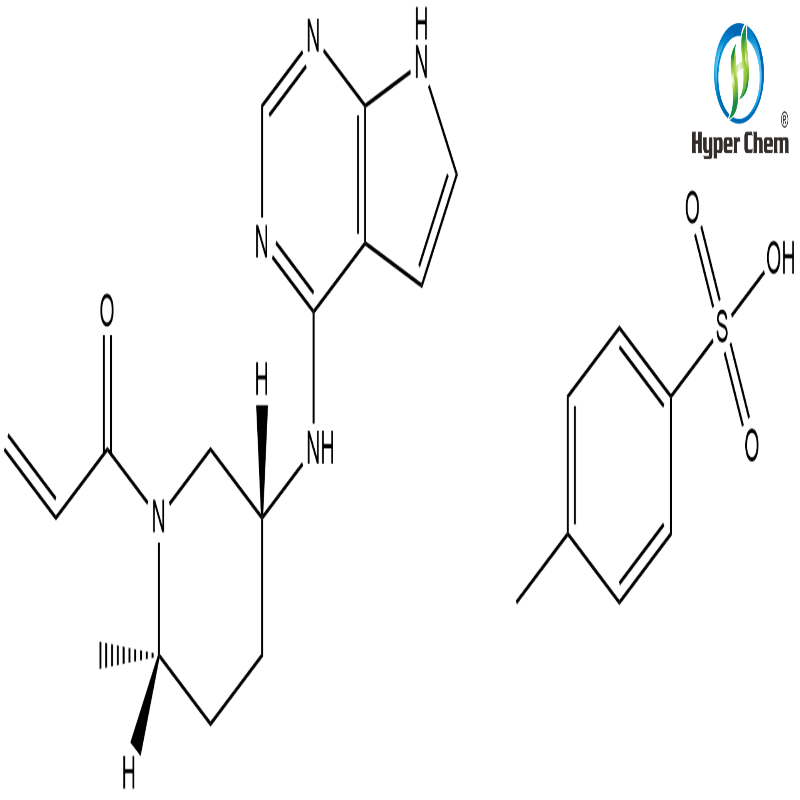-
Categories
-
Pharmaceutical Intermediates
-
Active Pharmaceutical Ingredients
-
Food Additives
- Industrial Coatings
- Agrochemicals
- Dyes and Pigments
- Surfactant
- Flavors and Fragrances
- Chemical Reagents
- Catalyst and Auxiliary
- Natural Products
- Inorganic Chemistry
-
Organic Chemistry
-
Biochemical Engineering
- Analytical Chemistry
-
Cosmetic Ingredient
- Water Treatment Chemical
-
Pharmaceutical Intermediates
Promotion
ECHEMI Mall
Wholesale
Weekly Price
Exhibition
News
-
Trade Service
August 13, 2020 // -- Chemotherapy can be used to effectively treat blood cancers such as leukemia, but drug-resistant cancer cells tend to avoid the most primitive drug treatment strategies to promote cancer recurrence, a study published recently in the international journal Cell Metabolism In the study, scientists from Harvard University and others identified the unique characteristics of drug-resistant cancer cells, namely, the short-term changes in their metabolic processes (how nutrients are used), and the findings could help researchers develop new ways to target the metabolic path paths that act on cancer cells to effectively eliminate drug-resistant cancer cells.
Photo Source: David Scadden/Harvard University Researcher David Scadden says that in the field of cancer research, we generally believe that drug resistance is associated with permanent genetic changes, and in this study we found that some cancer cells may also use other mechanisms to survive chemotherapy, while others do not, including how cancer cells use nutrients in the microenn environment, and the way they use nutrients may be as important as the genetic background they have.
Drug-resistant cancer cells are so rare that it is often difficult for researchers to detect them after chemotherapy, and in order to be able to identify drug-resistant cancer cells and track their progress over time, the researchers used a mouse model of acute myeloid leukemia to mark bioluminescent and fluorescent proteins on cancer cells, which were then analyzed at two special points in time.
When cancer returns, researchers study cancer cells, which is often important for studying cancer cell resistance because it is clinically significant, and then isolates drug-resistant cancer cells when the patient's chemotherapy response is greatest, and these cells are subjected to a certain amount of chemotherapy stress and induce a recurrence of the disease.
researchers found that cancer cells undergo short-lived changes in cell metabolism after chemotherapy, in particular by changing the way the amino acid glutamine is used almost entirely to promote nucleotide production.
researcher Gastel points out that these changes may not be visible when the cancer begins to relapse late, a short-lived stress response in which cancer cells become very vulnerable if they target the metabolism of cancer cells, and when researchers use only one day to target the metabolism of cancer cells or nucleotides, drug-resistant cancer cells are eliminated and the patient's disease symptoms improve.
The findings may offer some possibilities for researchers to target drug-resistant cancer cells because they have not found drugs that can target genetic mutations, and metabolic programming is driven by enzymes, and from a chemical point of view, small molecules and drugs can be used to target them more easily in pharmacology.
Several companies are currently developing new drugs to inhibit the metabolic path of drug-resistant cancer cells (though not necessarily for cancer treatment), and researchers hope to redirect inhibitors and combine them with chemotherapy to improve patients' treatment.
If inhibitors are given to patients treated with chemotherapy, patients may not need new drugs for a long time, and researchers can target the exact moment when the metabolism of cancer cells changes, which may avoid some of the toxicity problems of long-term treatment."
In addition to leukemia, the researchers say the new approach they have developed may have broader applicability, with the micro-environment in which cancer cells work in other types of cancers and diseases affecting the outcome of treatment in patients, and observing these problems in the context of a dynamic "ecosystem" often helps new methods of enemy, but this may require researchers to stay away from a single gene or individual The simplified view of cells, looking for key moments or paths in the cell population, may also help researchers make changes; it's a bit like studying archstones in arches, where studying a stone may not tell you much, but you can try the time it was placed and the stone next to it, so you might be able to understand what it really means and does.
() Original source: Nick van Gastel, Jessica B. Spinelli, Azeem Sharda, et al. Induction of a Timed Metabolic Collapse to Overcome Cancer Chemoresistance, Cell Metabolism (2020). DOI:10.1016/j.cmet.2020.07.009.







